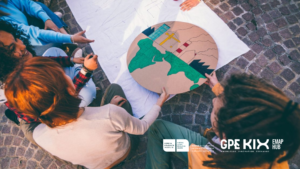- NORRAG Blog
- Contribute
- #TheSouthAlsoKnows
- Philanthropy in Education
- Humanitarian-Development-Peace Nexus
- Missing Education Data
- Systems Thinking
- Decolonising Development, Education and Data
- Early Childhood Education
- International Organisations and the Global Governance of Education
- Financing Education
- AI and the Digitalisation of Education: Challenges and Opportunities
- Pact for the Future
- Provocations for Education from Youth Climate Activism
- Social Emotional Learning and Pro-Environmental Behavior
Socio-Emotional Connections: The Heartbeat of Earth and Humanity
29 Jan 2026
In this blog post, which is part of NORRAG’s “Social Emotional Learning and Pro-Environmental Behaviour” blog series, Anvi Anand reflects upon the importance of socio-emotional connection with... Read More



